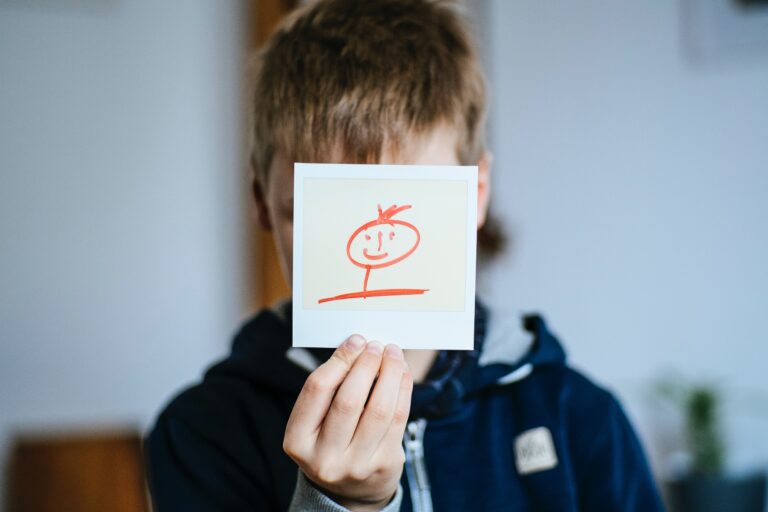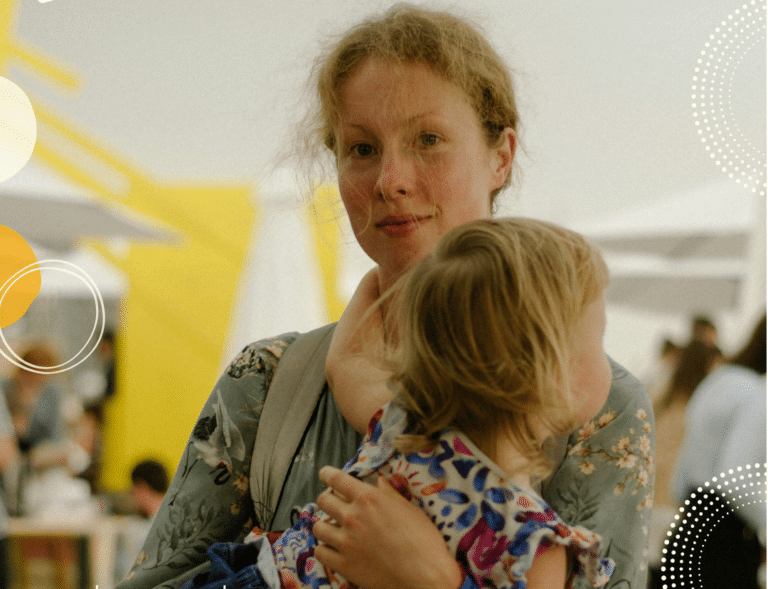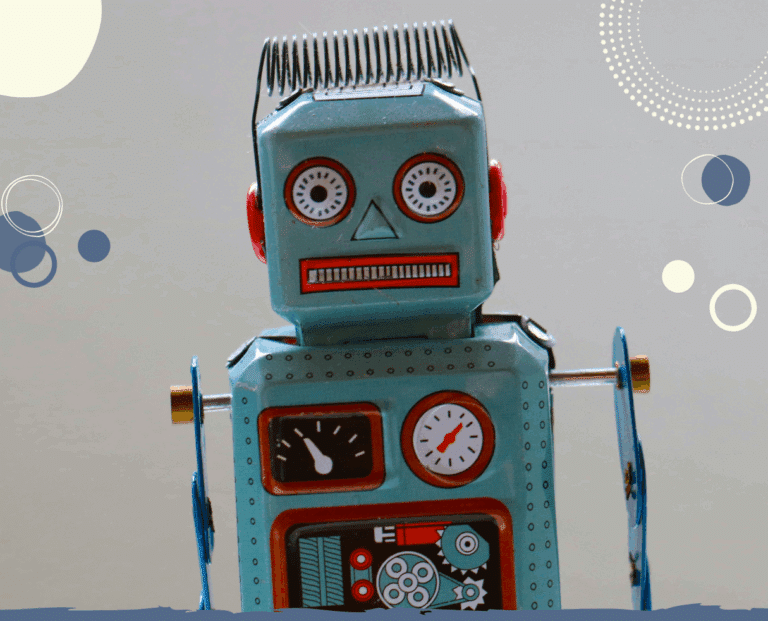How to help your child have a positive body image
Subconsciously, I equate food with love. As a result, I can take it too personally when my loved ones don’t want the food I provide, and I probably project that guilt onto them. I also sometimes use food for comfort, and I have been known to deny myself food as a form of self-harm. I once tried to set fire to a packet of biscuits to stop myself eating them all.
If you have a positive body image and an easy relationship with food then you are probably thinking that I’m a bit mental…
But in my experience, I’m pretty normal. Most of the mums I know or work with are at least a little bit screwy about food. And, hand on heart, the number of people I meet who are truly comfortable in their own bodies is a lot less than those who would rather their bodies were a bit (or a lot…) different.
Body image issues don’t only affect women and girls. Teenage boys are now under enormous pressure to conform to boy band ideals, and at a time when their bodies are in an awkward transitional phase. One third of men say they would give up a year of their lives to have the perfect body.
We live in an image-saturated society surrounded by an abundance of food and that is never going to be an easy combination. Walk through a railway station or shopping centre and you’ll see fashion outlets with blown-up pictures of happy stick-thin models on one side and cafes overflowing with pastries and muffins on the other. Alongside increasing obesity rates, more and more people are turning to plastic surgery to ‘correct’ their bodies and faces and fit into cultural images of physical acceptability and attractiveness. The badges of honour in our society (fame, fortune, followers) are attached to people whose main talent is to conform – through nature or knife – to an idealised image of physical beauty. Forget science and engineering (name me ten women scientists?), it’s WAGs that are held up as models for our girls while our boys want to be the footballers who bed them.
As a parenting coach, I abhor a ‘blame the parents’ approach. But as a parent, I recognise that I only have myself to blame if my particular food and body anxieties get transmitted to my children. Yes, society plays a huge role – the adverts they see, the programmes they watch, the magazines they read, the celebrities they follow – but as a parent I have a choice whether I reinforce those body image messages or offer alternative ways of thinking. And the main way I exercise that choice is through the things I say.
Language is more than just a communication tool. Language constructs ideas and viewpoints. The way we use language positions us vis-a-vis others. It reveals our values, our preoccupations, our fears. Our words and phrases model ways of thinking for our children. When your child plays with dolls or action figures and voices their words, whose words is it that come out of their mouths? “No, Teddy, don’t hit Bear, that’s naughty.” “No, Dolly, you can’t have any more dinner, you’ll get fat.”
So how can we support our children to develop a positive body image? If we want to help our children withstand the daily onslaught of digitally-perfected images and feel positively about their real bodies then we need to start firstly with what comes out of our own mouths. We need to catch our words and phrases and unpick the messages they contain.
Consider this question from your child: “Mummy, why are you putting on make-up?” There’s probably more than one honest answer, each one carrying a different message:
- “To make me look pretty.”
- “I feel more confident when I wear make-up.”
- “I’m going to work. Make-up is part of my uniform.”
The first two answers subtly suggest that make-up is necessary to overcome an inherent deficit: 1) reads “women aren’t attractive in their natural state,” and 2) infers “women feel better when enhanced.” Only answer three indicates that make-up is a social expectation rather than a route to overcoming a personal deficit.
Decoding the body image messages within our everyday words isn’t easy, but developing a habit of thinking critically about body messages is a great gift to pass on to our children. If you’re not sure where to start, here’s a few ideas to think about.
Negative comments
Try to avoid critical remarks about people’s appearance – your own, others’ (friends, family, celebrities), your child’s. Negative comments will have a negative impact. Critical remarks reinforce the idea that there is a ‘right’ way to look and that not conforming to that is a failure.
Celebrating diversity
Celebrate uniqueness – in yourself, your child and in others. Humans come in a wide range of shapes, colours and sizes and that is wonderful. Point out the positives in people. Praise your child’s good points, their strengths, the good things that they do, and help them develop a diverse self-concept in which they value themselves (and others) for a wide range of different attributes and factors.
Emphasising the non-physical
Society’s attention on appearance and strict ideals of physical beauty mean that other important attributes (such as intelligence, kindness, determination) can be seen as less important and less valued. Point out positive role models who have achieved success through talent and choices not through their appearance.
Media literacy
Encourage children to look critically at the images around them and to ask themselves “What’s the agenda?” Children and teenagers often do not realise the extent to which photos in magazines and adverts have been digitally enhanced and downright altered. Google some before and after images of famous beautiful people to show them the difference that airbrushing makes. Explore changing ideals of beauty throughout history and point out how we now see those ideals as bizarre: Victorian whalebone corsets, Chinese foot binding, powdered and be-wigged French revolution aristocrats. What will future generations think about our current generation’s belief that injecting animal protein into your face makes you more beautiful?
These are just ideas, not a magic bullet. Your children will still be surrounded by a myriad of other influences and pressures. But if we can teach children and teenagers to think critically about the body image messages they receive, and to think positively about their own uniqueness, we may go some way towards inoculating them against the excesses of those cultural pressures. Changing society always starts with changing yourself.
You might also want to take a look at the expert advice in this post: Promoting healthy body image in girls
If you are worried about your teenager, check out these websites for advice and information.







Fabulous post, thanks for pointing me here x
Glad you enjoyed it!
Fabulous post thank you so much for sharing! It’s not just you – there’s that age old tip of keeping a bottle of watery washing up liquid to squirt on to any kids’ leftovers to stop you eating them isn’t there?!
Very thought provoking x
The lengths we will go to are really quite absurd aren’t they! Wouldn’t recommend setting fire to biscuits, it didn’t really work….
Glad to see you recognising the impact on boys. While acknowledged in professional circles, very few parents seem to have go this message. it is a very difficult issue for girls and a growing problem, but it has at least been recognised. For boys it is a growing problem lacking recognition.
I have two teenage boys and I can clearly see all the same pressures on them as I felt as a teenager. I think there are differences in the messages girls and boys receive, but this is definitely not just a female issue.
Great Article, I often wonder how to get the balance right between helping my daughter understand we shouldn’t eat too many chocolates and creating a anxiety about body image. We try to focus on being strong, fit and healthy as opposed to thin but it’s a fine line.
I have also wondered exactly that question about make-up, and eventually decided I wouldn’t wear it any more. I didn’t like the message it was sending to my kids and now that I look around me I see plenty of women without make-up. So while it is a social norm, it doesn’t have to be a mandatory one. Though the depressing thing is people do look better with make-up! 🙁
It’s a minefield that we have to pick our way through, for sure. I think being aware and mindful and thoughtful – and maybe dealing with some of our own hang-ups if we can – is the best anyone can do!